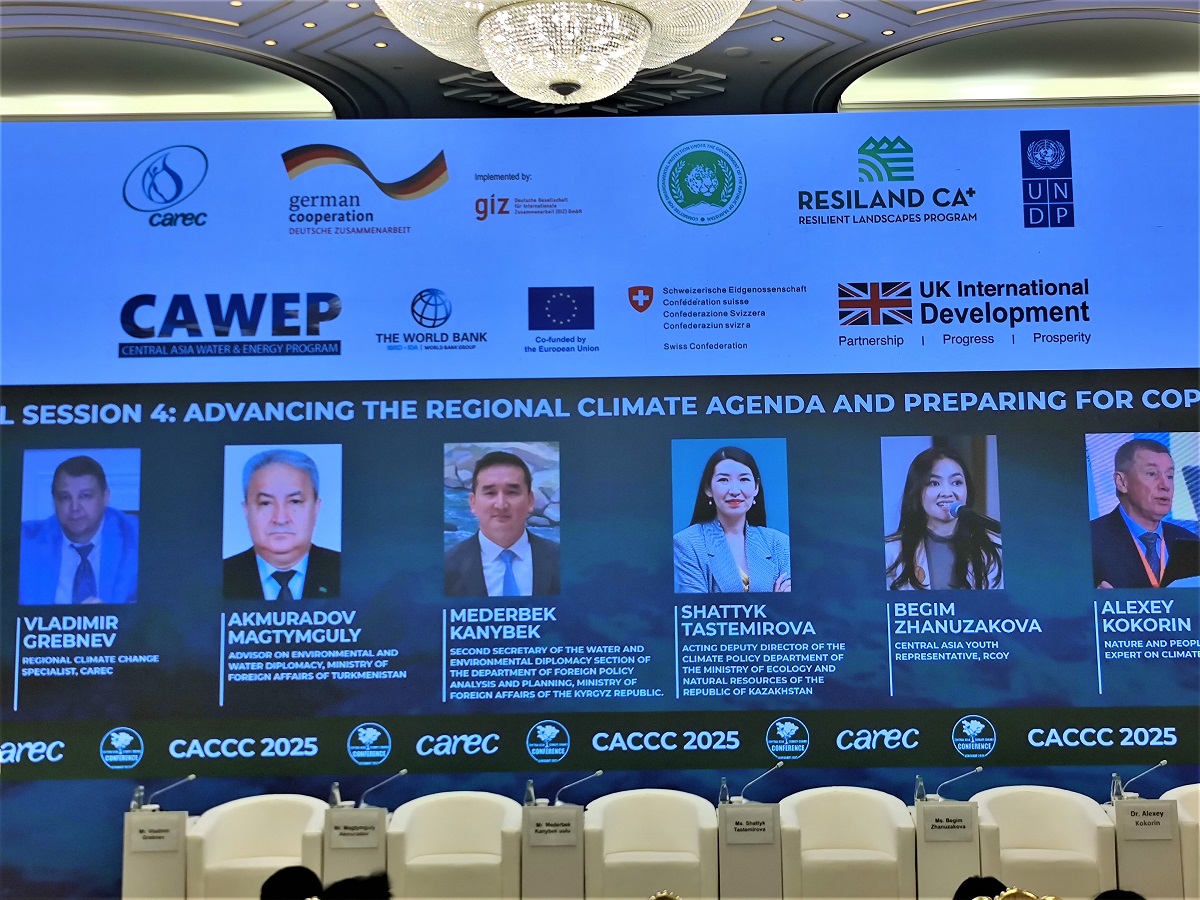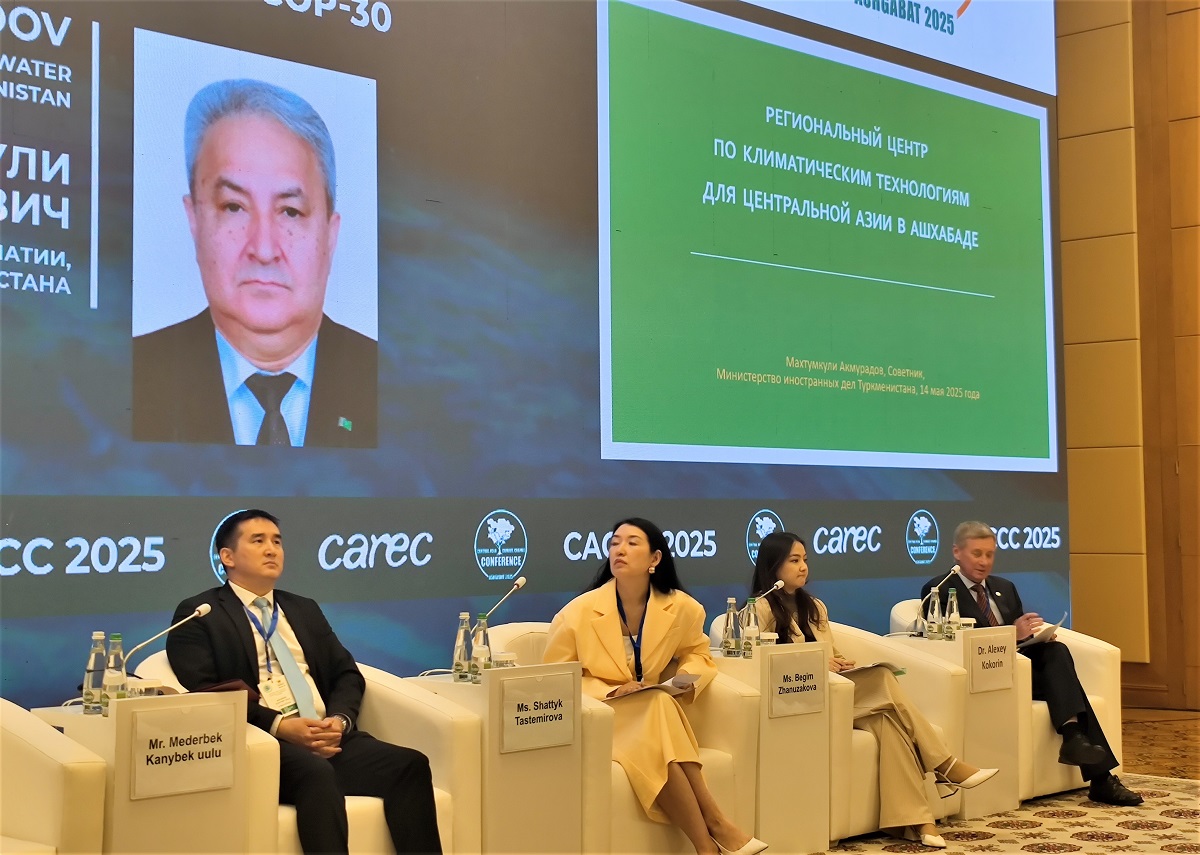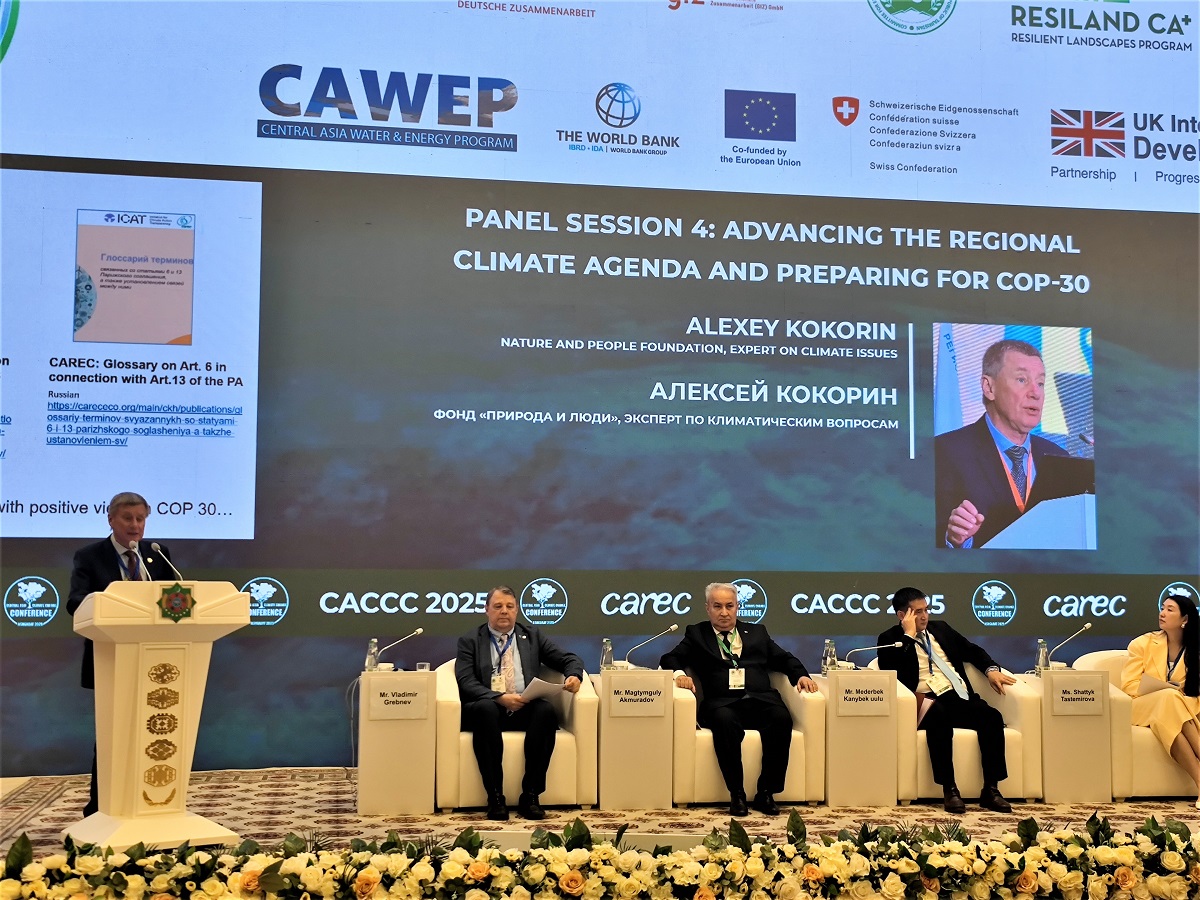Ashgabat Climate Technology Center Initiative – A Step Toward Regional Coordination
14.05.2025 | 20:00 |Ashgabat, May 14 | ORIENT. At the 7th Central Asian Conference on Climate Change (CACCC-2025), which concluded today in Ashgabat, one of the panel sessions was devoted to the development of the regional climate agenda and preparations for the upcoming 30th Conference of the Parties (COP30) to the UNFCCC. During this session, special attention was paid to specific steps to strengthen cooperation, and among the most significant initiatives was Turkmenistan's proposal to establish a Regional Climate Technology Center for Central Asian countries in Ashgabat under the auspices of the UN.

The session, moderated by Vladimir Grebnev, CAREC Regional Climate Change Specialist, brought together representatives of ministries and departments of Central Asian countries, international organizations and experts to discuss joint efforts, current and planned regional initiatives, as well as the development of a joint position for COP30 in Brazil.
The regional significance of Turkmenistan's initiative was the subject of a separate panel presentation given by Makhtumkuli Akmuradov, Advisor on Environmental and Water Diplomacy at the Ministry of Foreign Affairs of Turkmenistan.

This was followed by a panel discussion with the participation of deputy ministers and heads of relevant departments from Turkmenistan, Kazakhstan, Kyrgyzstan, Tajikistan and Uzbekistan. During the exchange of views, the participants discussed the complementarity of existing regional climate initiatives. In response to a general question about the vision for joint activities, the representatives of the Central Asian countries noted the existence of a number of useful ongoing projects and programs, but also pointed to the possible duplication of efforts due to the lack of complete information and emphasized the value of platforms such as CACCC for coordination.
It was in this context that representative of Turkmenistan, Deputy Minister of Environmental Protection Nury Amandurdyevich Djumashov, particularly highlighted the initiative to establish a Regional Climate Technology Center in Ashgabat, which had been put forward earlier. He emphasized that this Center could assume the role of a coordination mechanism on a Central Asian scale. Its function is to search for, demonstrate, implement and practically apply climate technologies, which is an extremely urgent task for all countries in the region.

Another important block of discussion was the preparation for the COP30 UNFCCC in Brazil. Representatives of the Central Asian countries were asked about the advisability of combining efforts and participating in the summit both with a single position and, possibly, with a single Central Asian Pavilion.
The representative of Turkmenistan expressed the position that, given the existing positive experience, it is very advisable to combine the efforts of countries and speak with a single position at COP30, especially on issues of adaptation to climate change. Regarding the single pavilion, it was noted that such experience also exists, but its implementation requires significant support, including financial support, which is especially relevant given the location of the summit in a remote province of Brazil. It was hoped that international or regional organizations would take the initiative to support the creation of such a pavilion.

The session also presented regional initiatives of Kyrgyzstan, Kazakhstan's experience in preparing for the International Climate Summit 2026, the voice of the region's youth was heard through a representative of YOUNGO/RCOY, and an expert presented the global and Central Asian context of the transition from COP29 to COP30. Panel Session 4 at CACCC-2025 clearly outlined the desire of the Central Asian countries to deepen regional cooperation in the climate sphere, presenting a specific initiative of Turkmenistan to create a Regional Climate Technology Center as a potential coordination mechanism, and also confirming the intention to develop a unified position of the region for effective participation in the upcoming global climate negotiations.











